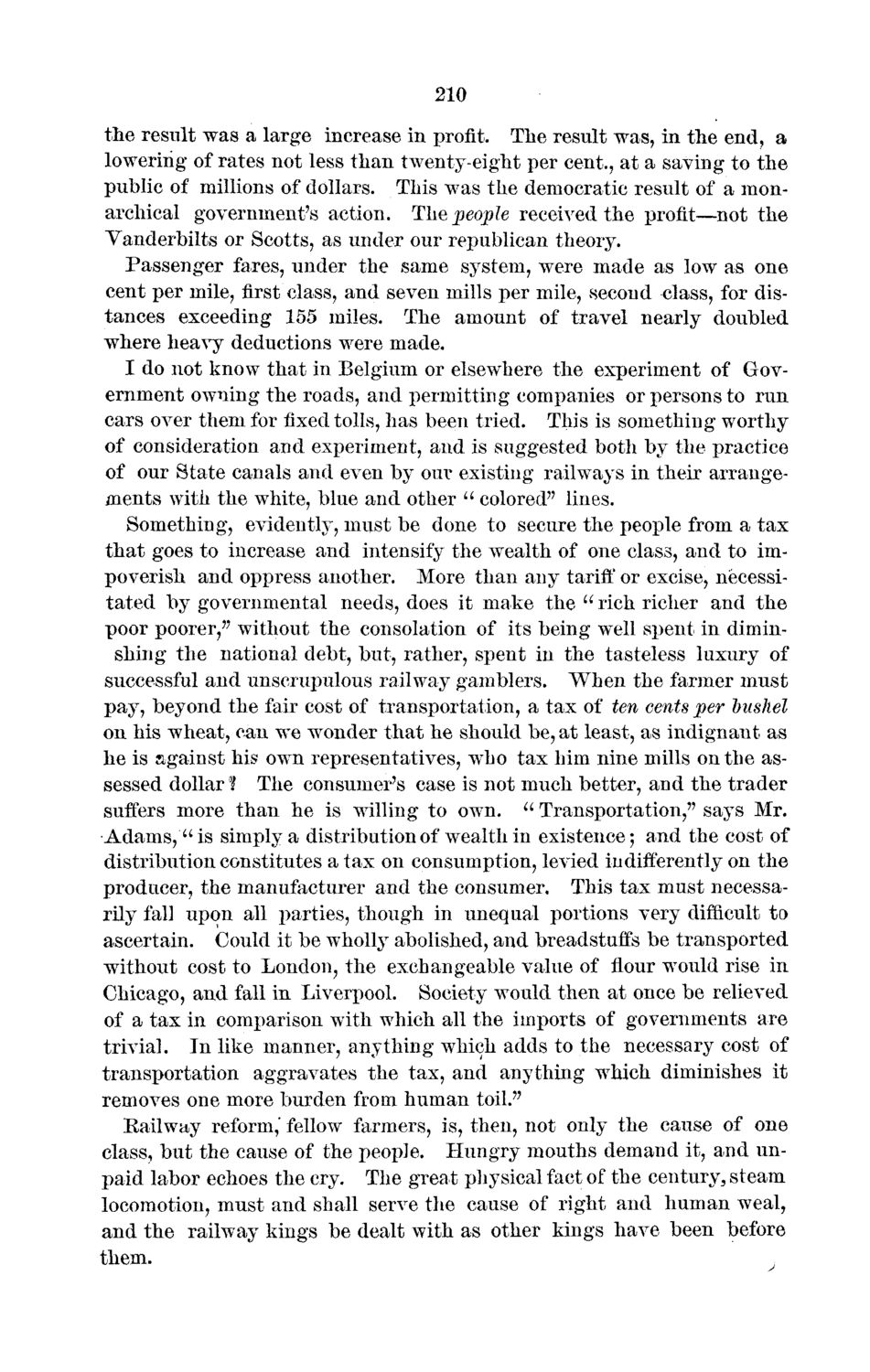| |
| |
Caption: Board of Trustees Minutes - 1872
This is a reduced-resolution page image for fast online browsing.

EXTRACTED TEXT FROM PAGE:
210 the result was a large increase in profit. The result was, in the end, a lowering of rates not less than twenty-eight per cent., at a saving to the public of millions of dollars. This was the democratic result of a monarchical government's action. The people received the profit—not the Yanderbilts or Scotts, as under our republican theory. Passenger fares, under the same system, were made as low as one cent per mile, first class, and seven mills per mile, second class, for distances exceeding 155 miles. The amount of travel nearly doubled where heavy deductions were made. I do not know that in Belgium or elsewhere the experiment of Government owning the roads, and permitting companies or persons to run cars over them for fixed tolls, has been tried. This is something worthy of consideration and experiment, and is suggested both by the practice of our State canals and even by our existing railways in their arrangements with the white, blue and other u colored" lines. Something, evidently, must be done to secure the people from a tax that goes to increase and intensify the wealth of one class, and to impoverish and oppress another. More than any tariff or excise, necessitated by governmental needs, does it make the " rich richer and the poor poorer,77 without the consolation of its being well spent in diminshing the national debt, but, rather, spent in the tasteless luxury of successful and unscrupulous railway gamblers. When the farmer must pay, beyond the fair cost of transportation, a tax of ten cents per bushel on his wheat, can we wonder that he should be, at least, as indignant as he is against his own representatives, who tax him nine mills on the assessed dollar U The consumer's case is not much better, and the trader suffers more than he is willing to own. " Transportation,77 says Mr. Adams,'" is simply a distribution of wealth in existence; and the cost of distribution constitutes a tax on consumption, levied indifferently on the producer, the manufacturer and the consumer. This tax must necessarily fall upon all parties, though in unequal portions very difficult to ascertain. Could it be wholly abolished, and breadstuffs be transported without cost to London, the exchangeable value of flour would rise in Chicago, and fall in Liverpool. Society would then at once be relieved of a tax in comparison with which all the imports of governments are trivial. In like manner, anything which adds to the necessary cost of transportation aggravates the tax, and anything which diminishes it removes one more burden from human toil.77 Bailway reform,' fellow farmers, is, then, not only the cause of one class, but the cause of the people. Hungry mouths demand it, and unpaid labor echoes the cry. The great physical fact of the century, steam locomotion, must and shall serve the cause of right and human weal, and the railway kings be dealt with as other kings have been before them.
| |